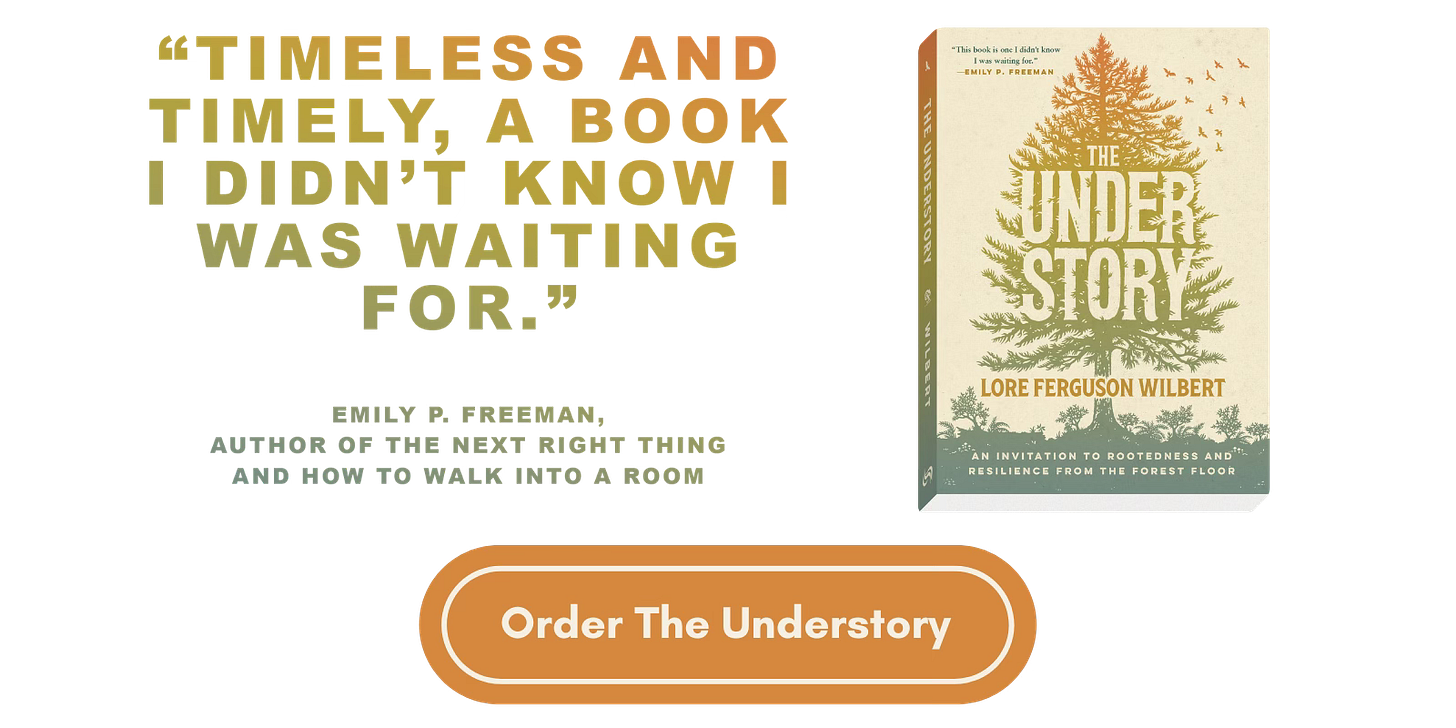The Most Loving Thing to Do
And the things we leave undone for love
The email came with no fanfare or accolades. The selling of a house is a transaction, hardly a transference. The only thing they owe us is the promised price; the only thing we owe them is a house in the same condition in which they’d promised the price. There is nothing in the money that changes hands that tells the story of the family, the children, the home they bought and now sold. The dollars do not tell us of homework done at midnight or sex on the living room couch or whispered fights in hallways or the broken water heater and that very bad Christmas one year. It is just a paper check passed from one hand to another, one bank account to another.
And in return we give you a house, not the home we made of it. We do not give you the lingering pinched nerve from days of hammering wide pine planks and painting trim. We do not give you the time that went into deciding whether this color or that matches the siding better. We do not give you the gut punch in our stomachs when we watch another grand and another go to firming up joists and blowing insulation in rafters, money spent on that which we’ll feel but never see. We do not give you the summer nights spent on the front porch swings weeping over our broken family and we do not give you the injustice we feel when the beavers steal another birch tree from our banks. We promise nothing of the love we fostered as we looked at one another, sweaty and sunburned, and old and getting older and determined to dig one more fence post. Just one more. We leave nothing of the stories of lilacs and promises and hydrangeas and death and poppies and hope. It is only a transaction, money for house, house for money.
We took the money and ran, sunk it into a townhouse in a new city, an act of faith if there was ever one. But behind us, a friend texts: the house we homed and then rehomed has a dumpster outside her. The email had come a day or two earlier, asking about paint and brands and tells us of plans for an addition and a subtraction and the ways they are making it their own. I gave it to them, I tell myself, it’s not mine any longer. But the truth is that land, land gets inside you; home becomes you and you become it and you become more of yourself because of it.
Whenever anyone asks about whether we miss it or why we’d leave it, I don’t know what to say. It felt like the hardest work of my life and a divorce to leave it behind. I put more blood, sweat, and tears into it than anything I’ve ever done maybe because the things I wanted to put blood, sweat, and tears into hadn’t materialized. And maybe a home isn’t a child but it is a thing we love, a thing we give ourselves to and hope it’ll give itself back to us. And it did, for a while. For four years it was the most home I’ve ever been.
But just outside her four walls and her riverbank and her secret garden, her enclave of neighbors, it was not home, it was a stranger and not a nice one. It was an inhospitable place for reasons of my own making and the making of others. I will not belabor it because for others, it is the most hospitable place in the world—which says more about the ways we get hospitality wrong than right, I think. I don’t know.
All I know is someone is taking a sledgehammer to the walls I painted and loved and they paid me for the right to do so, and what kind of person lets something like that happen?
There is something about the stewardship of a place for a time that I’m still learning. I learned about the seasons and the sunlight, the soil and the sacraments in that place. I learned about the things I’m willing to do and the lengths I’m willing to go to, and the things I will not do, no matter what. I put muscle and sinew behind the ideas I had about nature and gardening and land and justice and community, and I found myself, at the end of it all, sorely wanting. I could not do it. I could not stick it out. No matter how much I loved our home and our neighbors and the library ladies and the streets in autumn and the first snow, I could not stick it out.
There is only so much a home we love that loves us back can do.
I have friends who moved to their own land recently and I see the delight across every missive, the wonder, the labor they give to it, and I wish I could go back to 2020 and bottle all of my own. It is a beautiful thing to love something and think that love on its own is enough. Love may be the greatest of these but it is never enough on its own.
We are ending the first decade of our marriage. I am cognizant that for most of my peers they are ending their second or third, having vowed forever in their twenties when they didn’t know how long forever was. The rest of my peers never made it to twenty years, having already realized just how long forever was and knowing they couldn’t follow through. Those giddy years of joy and, yes, blood and sweat and tears, but also so many beautiful firsts and seconds, and hopes realized and wonder lived, they wore off. Love became a transaction. An exchange of time and energy, sex and childcare, a bigger house and better vacations, somewhere along the way the story of the love having been forgotten, and love itself forgotten too.
I wonder if it is because we don’t actually know what love is until we’ve weathered enough of the things that sharpen and soften the thing itself and the shape of love finally emerges? If love, real love, for the person, for the thing, for the entity, for the home, for ourselves, doesn’t come until we’ve been through hell and back?
All I know is love is not the feeling we get in the beginning. It is not dug fence posts and planted trees. It is not pinched nerves and painted walls. It is not the perfect color or a wall of windows facing the river all four seasons. Love is not a threshold we are carried across or a vow we say in front of our family and friends. Love is grit and tears and regret and grief and wonder amidst the disappointment of so many other things. Love is not something that we build or renovate. Love is something that happens to us, usually when we have already lost everything else masquerading as it.
Love is the pit in my stomach the past week. It is not regret, it is just sadness for all the work that went into something that could not stay the same forever. I look across the landscape of this life, this home, this marriage, and I wonder about the ways they have changed and are changing, the things we pour into them that we’ll soon regret having done,1 and the things—as our confessional prayer says—left undone. So many things left undone.
We have squirreled away points and dollars from grocery orders and Facebook marketplace sales, gathering enough so we can take trip to celebrate ten years of making it this far. I am squeamish about the trip for a dozen reasons. Over the past two years we’ve canceled more trips than we’ve taken, we haven’t taken a single vacation since 2019, we’ve forgotten how to have fun. But he is determined on Saturday morning to make the plan and follow it through. We book the tickets. We find the lodging. We make a plan because that’s how he likes to travel. We leave the itinerary open because that’s how I like to travel. We make plans with friends who live there to spend a night together. We cross our fingers. I begin to dream of highlands and rock formations, waterfalls and castles. Things formed and reformed a thousand times over by erosion and storm and wind and the hundreds of thousands of human hands who have played a part in their story.
Nothing we love stays the same forever. It is not “an ever fixed mark,” unless that mark is just forward, forward, forward, wherever it takes us, and when, and how.
Find me on Instagram | Facebook | My Archives
Like the pink walls in the living room of our new house, which I regretted almost as soon as the painter left.







"All I know is someone is taking a sledgehammer to the walls I painted and loved and they paid me for the right to do so, and what kind of person lets something like that happen?"
"I could not do it. I could not stick it out. No matter how much I loved our home and our neighbors and the library ladies and the streets in autumn and the first snow, I could not stick it out."
"Love may be the greatest of these but it is never enough on its own."
These are the places that made me cry, again, and again, and again. I know that you write about much more than a house. I know what it is to say "There is only so much a home we love that loves us back can do" and also mean family.
Oh, this ache.
I wrote this about a week ago. I hope maybe it helps a little. https://baptistnews.com/article/estranged-for-the-holidays-youre-not-alone/
It's really hard to see how family members have remodeled themselves entirely away from you, too. The last time I saw my sister in person, she was 17. She's 26 now and finally talking to me again.
I didn't recognize her when I first found her new social profile.
Thank you for talking about all these things. And I'm so sad for you, for your home. "What is grief if not love having nowhere to go?" From Wandavision--it remains one of the best encapsulations of this that I've heard.
This is just beautiful, Lore. You are a young woman with an old soul, I mean that as the highest of compliments. My husband and I are coming up on forty years together this year; hard to believe. Several years ago we determined that love is what you go through with somebody. The "long obedience in the same direction" that finally supersedes "transaction" (the low hanging fruit) and moves to "transformation", like those rock formations and streams forged by the forces that shaped them. I can truly say, it's the "suffering with" that brings about the beauty and goodness. Hope you have a glorious time soaking in wonderful experiences of God's goodness to both of you.